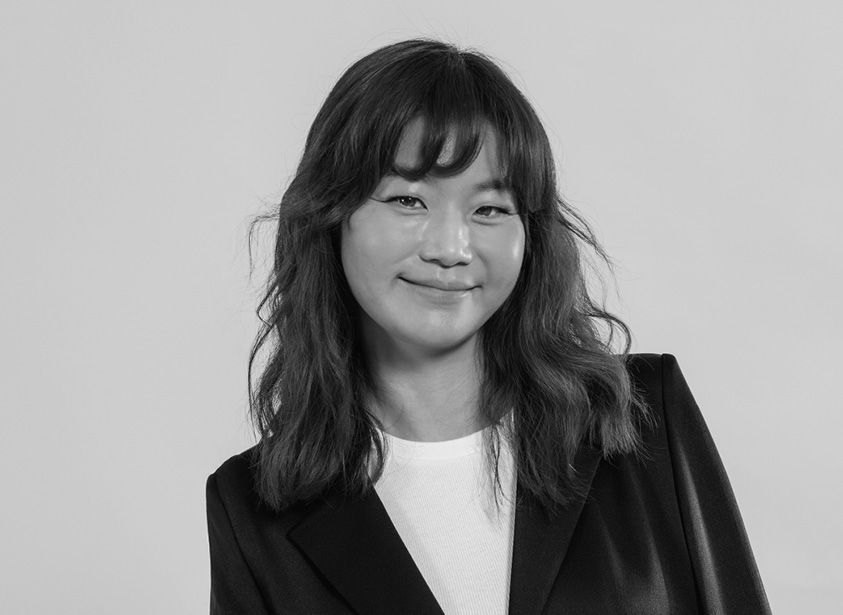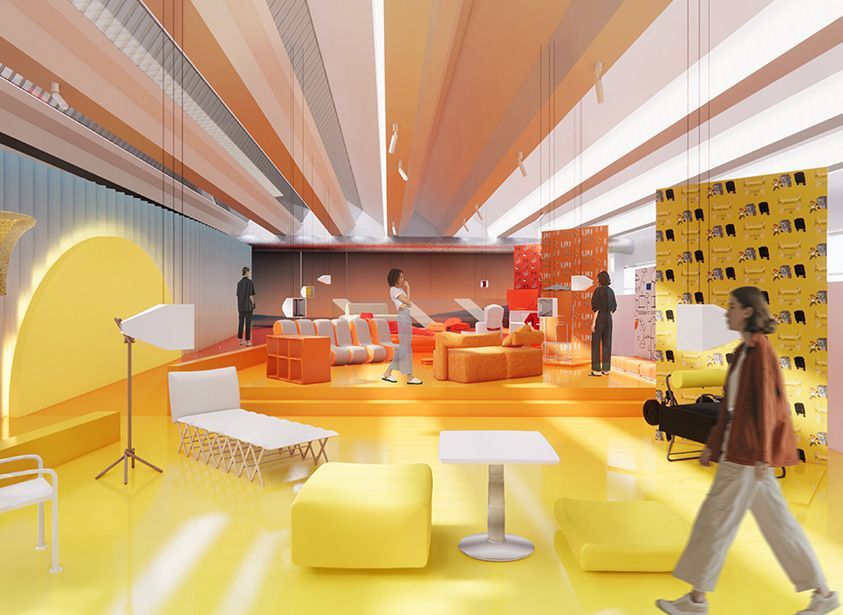Navigating the Future of Design in AI and Tech

Ever wondered how design shapes the cutting edge of AI and tech? In her talk at Domus Academy, IBM’s AI Governance expert Chloe Lee unveils pathways, ethical considerations and essential skills for navigating this dynamic landscape.

As part of the Connecting the Dots series at Domus Academy, a recent conversation featured Chloe Jaehee Lee, a former Domus Academy Business Design student and now AI Governance Design Lead at IBM. Chloe shared her expertise on transitioning from design education to the world of AI and tech, focusing on the intersection of design, technology, and ethics in the rapidly evolving AI field. The conversation was moderated by Andrea Desiato, the former Programme Leader of the Master in Service Design and Interaction Design at Domus Academy. Together, they offered practical advice and valuable insights for students looking to navigate this dynamic field.

One of the key takeaways from the conversation was the importance of curiosity and continuous learning. Chloe emphasised that curiosity is essential for anyone transitioning from design into tech or AI. It’s crucial to dive deep into the industries you’re interested in, researching the products, services, and design approaches of companies to better frame your design ideas. This proactive approach helps students build a stronger foundation in the industry, making it easier to apply their design knowledge to new, innovative contexts.
In the world of tech and AI, designers are often required to collaborate with engineers, product managers, and other non-design professionals. Chloe highlighted the importance of cross-disciplinary collaboration. At Domus Academy, where students work with peers from various design backgrounds, this collaborative experience becomes invaluable in the tech world. Even if you don’t speak the same technical language as engineers, understanding their perspective is key to effective collaboration. This ability to empathise with different team members creates a stronger, more dynamic approach to problem-solving, which is essential for success in tech-driven environments.
To fully prepare for a career in AI and tech, Chloe stressed the importance of hands-on experience. She recommended that students seek internships, side projects, or freelance opportunities to apply what they’ve learned in the classroom to real-world challenges. These experiences allow budding designers to transition from theoretical knowledge to practical skills, providing a deeper understanding of how design integrates with technology, especially AI tools.
The tech and AI fields are evolving at a breakneck pace, and staying ahead of the curve is essential. Chloe’s advice to stay curious and proactive resonates deeply in a world where new tools and frameworks are constantly emerging. By keeping up with industry trends and asking critical questions—like how AI is shaping the design landscape—students can position themselves as forward-thinking professionals who are always prepared for the next wave of innovation.
As design students begin to transition into AI, Chloe emphasised the importance of curating a portfolio tailored to the tech and AI sectors. Students should showcase projects that involve technology, data, or complex systems. While direct AI experience may not always be possible at first, they can still focus on projects that highlight their ability to solve intricate problems, a quality that is highly valued in the tech world.
Perhaps one of the most compelling aspects of the conversation was the discussion about the ethical implications of AI. As AI continues to evolve, its role in society raises important ethical questions about transparency, accountability, and the broader societal impact of design decisions. Chloe stressed that designers must be aware of these issues and understand the potential consequences of their work. In AI, transparency and responsibility are critical, and understanding the ethical implications is crucial in ensuring that AI technologies are developed and applied in ways that are both ethical and sustainable. AI governance, she explained, is not just a regulatory hurdle, but a critical framework for long-term, responsible innovation.
In line with the growing importance of sustainability, the conversation also delved into the role of AI in supporting environmental goals. Chloe pointed out that AI has significant potential in areas like predictive analysis and improving efficiency, which can help tackle environmental challenges. However, she also reminded the audience that the AI industry itself comes with an environmental cost, particularly in terms of energy consumption during the training of AI models. Balancing the benefits of AI with its environmental impact is something that tech companies and design professionals must be mindful of moving forward.
Reflecting on her own time at Domus Academy, Chloe shared how the practical, hands-on curriculum played a crucial role in preparing her for her career in tech. While she initially did not choose Italy for its location, she praised Domus Academy for its collaboration with industries and its project-based approach. The ability to work closely with industry partners and gain real-world experience was something she appreciated and encouraged future Domus Academy students to take advantage of.





